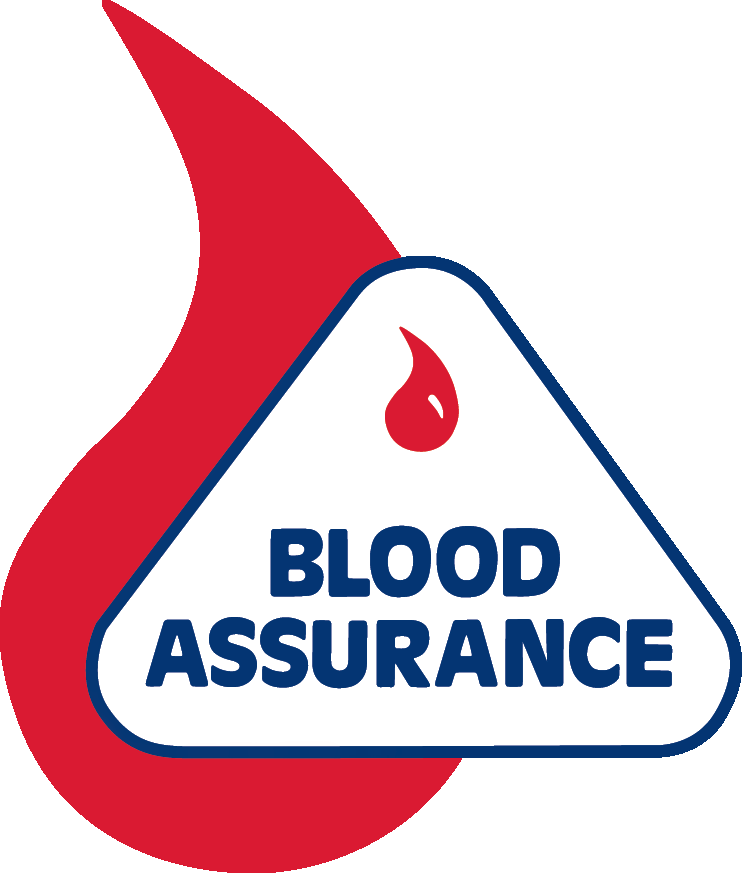Quality Statement
The Blood Assurance commitment to quality is demonstrated by exhibiting the highest standards in collection, processing, testing, and distribution of blood, cellular therapy, and research products to provide safe and adequate products to the communities and entities we serve. This is achieved by:
Assuring process improvement of existing business practices through ongoing review and evaluation.
Exceeding compliance standards set by all federal, state, and local regulatory agencies, along with applicable accrediting agencies.
Identifying needs and exceeding customer service expectations for all we serve, including hospitals; patients; blood, cellular therapy and research donors through professional and timely service, courtesy, and respect.
Providing ongoing educational programs for healthcare facilities and professionals, Blood Assurance employees, and members of the communities we serve.
Building an atmosphere of teamwork and professionalism among employees with a challenging and rewarding work environment.
Creating a constant culture of pride in all that we do and for all that we serve by encouraging the free and open exchange of ideas.
Promoting continuous quality and compliance awareness among Blood Assurance employees by means of ongoing company-wide quality-related activities.
Quality Policy
Blood Assurance shall be committed to providing the highest quality products and services possible. This shall be accomplished by complying with all applicable standards and regulations, responding to customer’ needs, detecting and preventing errors, selecting, developing and maintaining a competent staff, reducing process variations, and emphasizing continuous process improvement.
Responsibility and Authority
The CEO shall be responsible for overall leadership of the facility’s operations and fully endorse all efforts related to the quality functions of the organization.
The Medical Director shall exercise control over all matters related to compliance and shall have the ability to implement corrective action when necessary. The Medical Director shall also be responsible for ensuring that an adequate number of personnel for anticipated production volumes are appropriately trained and competent to perform their duties. The Medical Director shall provide medical guidance for the collection, processing, storage, distribution of blood and blood components, cellular therapy and research activities and review and approve all policies, process descriptions, and standard operating procedures. The Medical Director shall provide consultative and support services in relation to donors, patients and transfusion recipients.
The Quality Assurance unit shall report independently from operations to the Medical Director. The Quality Assurance unit shall ensure that operation personnel follow cGMP and cGTP. The Quality Assurance unit shall recommend corrective action when appropriate, and when necessary, Quality Assurance shall have the authority to stop production and/or release of product. The quality unit shall determine that SOPs exist for all manufacturing procedures and shall ensure that these procedures comply with all applicable standards and regulations. The quality unit shall review and approve the content of all SOPs prior to implementation, maintain a master index of current SOPs, and maintain an archive file for obsolete SOPs. The quality unit shall ensure that SOPs are updated to reflect changes in manufacturer’s directions and shall ensure that SOPs accurately reflect current practice. The quality unit shall ensure that validation protocols are designed, performed and evaluated. The quality unit shall ensure that appropriate training programs are developed, maintained and performed for all personnel. The quality unit shall ensure competency assessments are performed at appropriate intervals. The quality unit shall ensure that training records are complete and competency is current. The quality unit shall oversee the processes for records management, error management, audits, personnel training and competency.
Department heads shall be responsible for the execution and documentation of departmental quality issues including training and competency, development of procedures, quality control, instrument validation and calibration.
Organizational quality issues shall be discussed at regular meetings of the Quality Assurance Committee. The Chief Executive Officer, Chief Operations Officer and Medical Director shall be standing members of the Quality Committee. The Chief Executive Officer and Medical Director shall review and approve all Quality Committee Meeting Minutes.

